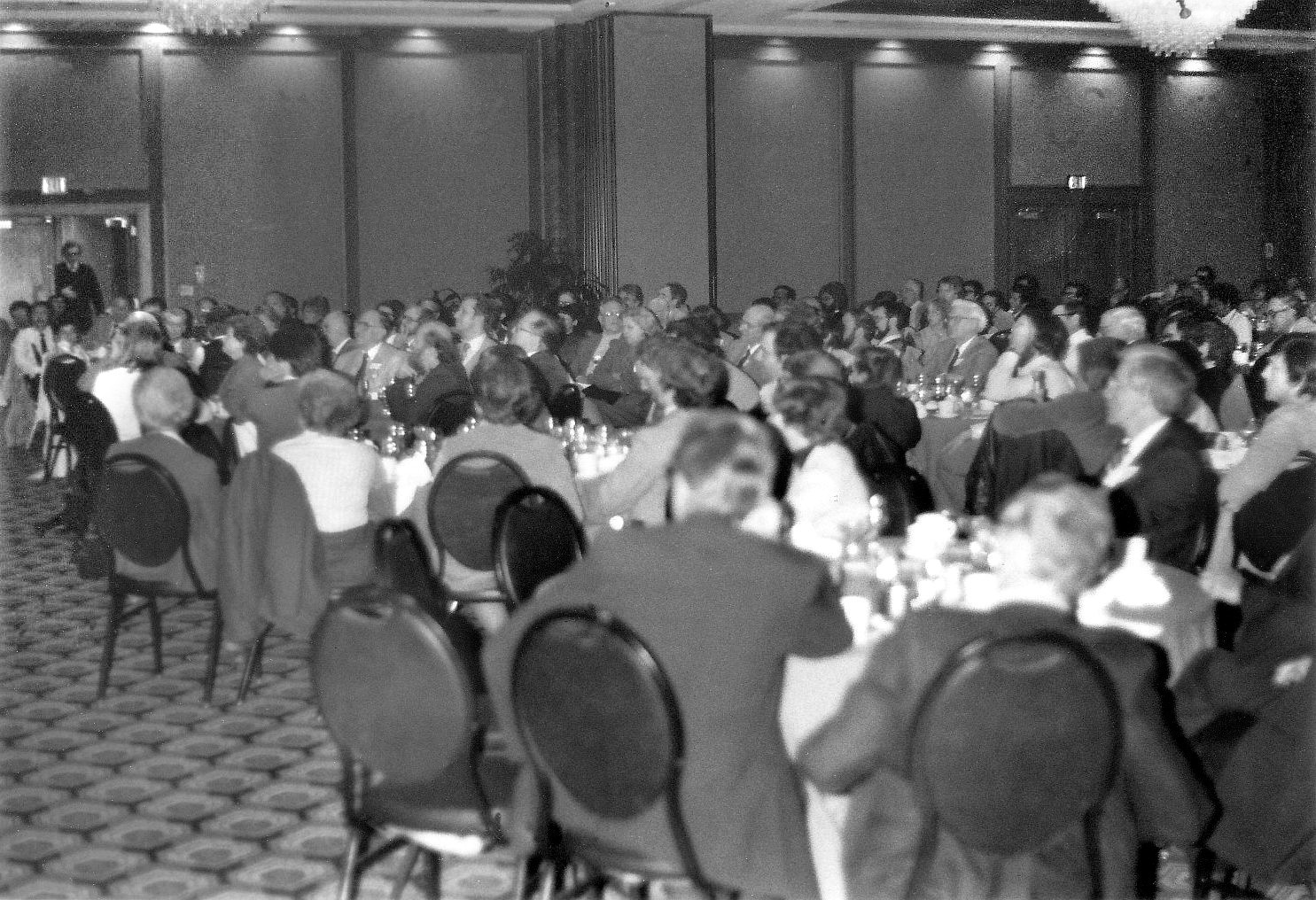|
Slain In The Spirit
Slain in the Spirit or slaying in the Spirit are terms used by Pentecostal and charismatic Christians to describe a form of prostration in which an individual falls to the floor while experiencing religious ecstasy. Believers attribute this behavior to the power of the Holy Spirit. Other terms used to describe the experience include falling under the power, overcome by the Spirit, and resting in the Spirit. The practice is associated with faith healing because individuals are often slain while seeking prayer for illness. Description Sociologist Margaret Poloma has defined slaying in the Spirit as "the power of the Holy Spirit so filling a person with a heightened inner awareness that the body's energy fades away and the person collapses to the floor". Slaying in the Spirit may occur in a variety of settings, including while a person prays in solitude. However, it usually occurs in group settings, including small prayer groups, religious conferences or retreats, regular church se ... [...More Info...] [...Related Items...] OR: [Wikipedia] [Google] [Baidu] |
Autosuggestion
Autosuggestion is a psychological technique related to the placebo effect, developed by pharmacist Émile Coué at the beginning of the 20th century. It is a form of self-induced suggestion in which individuals guide their own thoughts, feelings, or behavior. The technique is often used in self-hypnosis. Typological distinctions Émile Coué identified two very different types of self-suggestion: * intentional, "''reflective autosuggestion''": made by deliberate and conscious effort, and * unintentional, "''spontaneous auto-suggestion''": which is a "natural phenomenon of our mental life … which takes place without conscious effort nd has its effectwith an intensity proportional to the keenness of urattention". In relation to Coué's group of "spontaneous auto-suggestions", his student Charles Baudouin (1920, p. 41) made three further useful distinctions, based upon the sources from which they came: * "Instances belonging to the representative domain ( ... [...More Info...] [...Related Items...] OR: [Wikipedia] [Google] [Baidu] |
Baptists
Baptists are a Christian denomination, denomination within Protestant Christianity distinguished by baptizing only professing Christian believers (believer's baptism) and doing so by complete Immersion baptism, immersion. Baptist churches generally subscribe to the Christian theology, doctrines of soul competency (the responsibility and accountability of every person before God in Christianity, God), ''sola fide'' (salvation by faith alone), ''sola scriptura'' (the Bible is the sole infallible authority, as the rule of faith and practice) and Congregationalist polity, congregationalist church government. Baptists generally recognize two Ordinance (Christianity), ordinances: Baptism, baptism and Eucharist, communion. Diverse from their beginning, those identifying as Baptists today may differ widely from one another in what they believe, how they worship, their attitudes toward other Christians, and their understanding of what is important in Christian discipleship. Baptist mi ... [...More Info...] [...Related Items...] OR: [Wikipedia] [Google] [Baidu] |
Congregationalists
Congregationalism (also Congregational Churches or Congregationalist Churches) is a Reformed Christian (Calvinist) tradition of Protestant Christianity in which churches practice congregational government. Each congregation independently and autonomously runs its own affairs. These principles are enshrined in the Cambridge Platform (1648) and the Savoy Declaration (1658), Congregationalist confessions of faith. The Congregationalist Churches are a continuity of the theological tradition upheld by the Puritans. Their genesis was through the work of Congregationalist divines Robert Browne, Henry Barrowe, and John Greenwood. In the United Kingdom, the Puritan Reformation of the Church of England laid the foundation for such churches. In England, early Congregationalists were called '' Separatists'' or '' Independents'' to distinguish them from the similarly Calvinistic Presbyterians, whose churches embraced a polity based on the governance of elders; this commitment t ... [...More Info...] [...Related Items...] OR: [Wikipedia] [Google] [Baidu] |
Presbyterians
Presbyterianism is a historically Reformed Protestant tradition named for its form of church government by representative assemblies of elders, known as "presbyters". Though other Reformed churches are structurally similar, the word ''Presbyterian'' is applied to churches that trace their roots to the Church of Scotland or to English Dissenter groups that were formed during the English Civil War, 1642 to 1651. Presbyterian theology typically emphasises the sovereignty of God, the authority of the Scriptures, and the necessity of grace through faith in Christ. Scotland ensured Presbyterian church government in the 1707 Acts of Union, which created the Kingdom of Great Britain. In fact, most Presbyterians in England have a Scottish connection. The Presbyterian denomination was also taken to North America, Australia, and New Zealand, mostly by Scots and Scots-Irish immigrants. Scotland's Presbyterian denominations hold to the Reformed theology of John Calvin and his i ... [...More Info...] [...Related Items...] OR: [Wikipedia] [Google] [Baidu] |
Christian Revival
Christian revival is defined as "a period of unusual blessing and activity in the life of the Christian Church". Proponents view revivals as the restoration of the Church to a vital and fervent relationship with God after a period of moral decline, instigated by God, as opposed to an evangelistic campaign. Revivals within modern church history Within Christian studies the concept of revival is derived from biblical narratives of national decline and restoration during the history of the Israelites. In particular, narrative accounts of the Kingdoms of Israel and Judah emphasise periods of national decline and revival associated with the rule of respectively wicked or righteous kings. Josiah is notable within this biblical narrative as a figure who reinstituted temple worship of Yahweh while destroying pagan worship. Within modern church history, church historians have identified and debated the effects of various national revivals within the history of the US and other countries. ... [...More Info...] [...Related Items...] OR: [Wikipedia] [Google] [Baidu] |
Thirteen Colonies
The Thirteen Colonies were the British colonies on the Atlantic coast of North America which broke away from the British Crown in the American Revolutionary War (1775–1783), and joined to form the United States of America. The Thirteen Colonies in their traditional groupings were: the New England Colonies (New Hampshire, Massachusetts, Rhode Island, and Connecticut); the Middle Colonies ( New York, New Jersey, Pennsylvania, and Delaware); and the Southern Colonies (Maryland, Virginia, North Carolina, South Carolina, and Georgia). These colonies were part of British America, which also included territory in The Floridas, the Caribbean, and what is today Canada. The Thirteen Colonies were separately administered under the Crown, but had similar political, constitutional, and legal systems, and each was dominated by Protestant English-speakers. The first of the colonies, Virginia, was established at Jamestown, in 1607. Maryland, Pennsylvania, and the New England Colon ... [...More Info...] [...Related Items...] OR: [Wikipedia] [Google] [Baidu] |
First Great Awakening
The First Great Awakening, sometimes Great Awakening or the Evangelical Revival, was a series of Christian revivals that swept Britain and its thirteen North American colonies in the 1730s and 1740s. The revival movement permanently affected Protestantism as adherents strove to renew individual piety and religious devotion. The Great Awakening marked the emergence of Anglo-American evangelicalism as a trans-denominational movement within the Protestant churches. In the United States, the term ''Great Awakening'' is most often used, while in the United Kingdom, the movement is referred to as the ''Evangelical Revival''. Building on the foundations of older traditions—Puritanism, Pietism, and Presbyterianism—major leaders of the revival such as George Whitefield, John Wesley, and Jonathan Edwards articulated a theology of revival and salvation that transcended denominational boundaries and helped forge a common evangelical identity. Revivalists added to the doctrinal imperativ ... [...More Info...] [...Related Items...] OR: [Wikipedia] [Google] [Baidu] |
Committee For Skeptical Inquiry
The Committee for Skeptical Inquiry (CSI), formerly known as the Committee for the Scientific Investigation of Claims of the Paranormal (CSICOP), is a program within the U.S. non-profit organization Center for Inquiry (CFI), which seeks to "promote scientific inquiry, critical investigation, and the use of reason in examining controversial and extraordinary claims." Paul Kurtz proposed the establishment of CSICOP in 1976 as an independent non-profit organization (before merging with CFI as one of its programs in 2015), to counter what he regarded as an uncritical acceptance of, and support for, paranormal claims by both the media and society in general. Its philosophical position is one of scientific skepticism. CSI's fellows have included notable scientists, Nobel laureates, philosophers, psychologists, educators, and authors. It is headquartered in Amherst, New York. History The committee was officially launched on April 30, 1976, and was co-chaired by Paul Kurtz an ... [...More Info...] [...Related Items...] OR: [Wikipedia] [Google] [Baidu] |
Hypnosis
Hypnosis is a human condition involving focused attention (the selective attention/selective inattention hypothesis, SASI), reduced peripheral awareness, and an enhanced capacity to respond to suggestion.In 2015, the American Psychological Association Division 30 defined hypnosis as a "state of consciousness involving focused attention and reduced peripheral awareness characterized by an enhanced capacity for response to suggestion". For critical commentary on this definition, see: There are competing theories explaining hypnosis and related phenomena. ''Altered state'' theories see hypnosis as an altered state of mind or trance, marked by a level of awareness different from the ordinary state of consciousness. In contrast, ''non-state'' theories see hypnosis as, variously, a type of placebo effect,Kirsch, I., "Clinical Hypnosis as a Nondeceptive Placebo", pp. 211–25 in Kirsch, I., Capafons, A., Cardeña-Buelna, E., Amigó, S. (eds.), ''Clinical Hypnosis and Self-Regul ... [...More Info...] [...Related Items...] OR: [Wikipedia] [Google] [Baidu] |
Benny Hinn
Toufik Benedictus "Benny" Hinn (born 3 December 1952) is an Israeli-born Palestinian-American-Canadian televangelist, best known for his regular "Miracle Crusades"— revival meeting or faith healing summits that are usually held in stadiums in major cities, which are later broadcast worldwide on his television program, '' This Is Your Day''. Biography Hinn was born in Jaffa, in 1952, in the then newly established state of Israel to parents born in Palestine who had Greek, Palestinian and Armenian heritage. He was raised within the Eastern Orthodox tradition and baptized by the patriarch of Jerusalem. Soon after the 1967 Arab–Israeli War ("The Six-Day War"), Hinn's family emigrated to Toronto, Ontario, Canada, in 1968 where he attended Georges Vanier Secondary School. He did not graduate. In his books, Hinn states falsely that his father was the mayor of Jaffa at the time of his birth and that he was socially isolated as a child and had a stutter, and he was a first-cla ... [...More Info...] [...Related Items...] OR: [Wikipedia] [Google] [Baidu] |
Skeptical Inquirer
''Skeptical Inquirer'' (S.I.) is a bimonthly American general-audience magazine published by the Committee for Skeptical Inquiry (CSI) with the subtitle "The Magazine for Science and Reason". The magazine initially focused on investigating claims of the paranormal, but evolved and expanded to address other pseudoscientific topics that are antithetical to critical thinking and science. Notable skeptics have credited the magazine in influencing their development of scientific skepticism. In the "Letters to the Editor", the most frequent letters of appreciation come from educators. History The magazine was originally titled ''The Zetetic'' (from the Greek meaning "skeptical seeker" or "inquiring skeptic"), and was originally edited by Marcello Truzzi. About a year after its inception a schism developed between the editor Truzzi and the rest of the Committee for the Scientific Investigation of Claims of the Paranormal (CSICOP). CSICOP was more "firmly opposed to nonsense, more ... [...More Info...] [...Related Items...] OR: [Wikipedia] [Google] [Baidu] |




